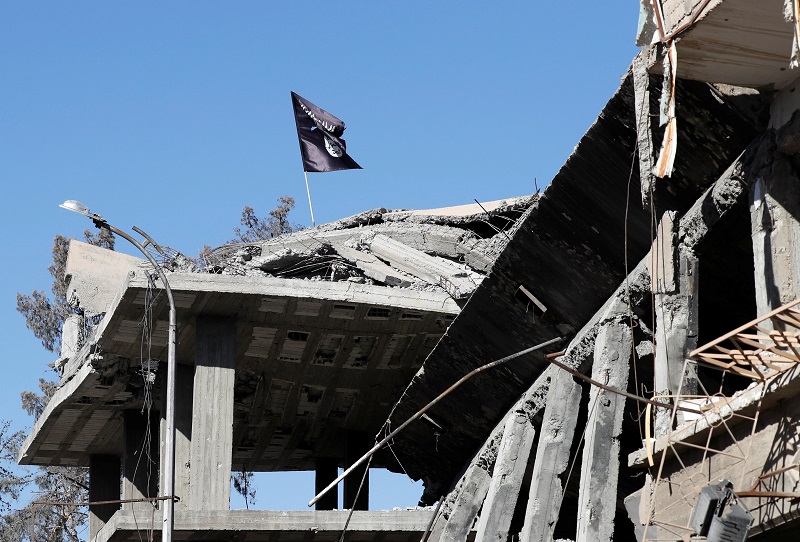KUALA LUMPUR, March 21 — Malaysians who joined the Islamic State (IS) in Syria should be allowed to return home, some analysts said despite a recent terror attack in New Zealand.
Analysts Malay Mail spoke to however had differing views on how these Malaysian terrorists should be received and treated, with one of them even warning: “What happened in Christchurch could happen here.”
Universiti Sains Malaysia political science professor Ahmad Fauzi Abdul Hamid said Malaysian authorities must exercise caution with returning militants.
He told Malay Mail that de-radicalising someone who had initially planned to give up their life for a jihadist cause was not so simple.
“Counter terrorism studies have shown it’s very hard to disentangle from the hardcore militant ideology,” he said.
“Just because circumstances let them come back, we shouldn’t trust them on the surface,” added Ahmad, who is also a member of the panel of experts that advises the Home Ministry in dealing with terrorism cases under the Security Offences (Special Measures) Act 2012.
“With the toxic ethno-religious policies in Malaysia, people can easily get fired up and being former militants, they can easily be sensitised in an unexpected and dangerous way.
“Whatever rehab course or de-radicalisation course imposed on them must be continuous and not temporary. If not, what happened in Christchurch can happen here.”
A gunman with alleged white supremacist ideology killed 50 people, including a Malaysian teenager, at two mosques in Christchurch, New Zealand, last Friday. Three Malaysian men were also injured.
Ahmad said the Christchurch shooting was committed by one person, but there could be more such people in Malaysia as those pushing extremist beliefs are doing so online and have a faster and wider reach.
He highlighted that Malaysia had enacted two preventive laws — the Prevention of Terrorism Act (POTA) 2015 and Special Measures against Terrorism in Foreign Countries Act (SMATA) 2015 — to counter terror acts in Malaysia.
“These two Acts give provisions to the government that allow for terrorists to be prosecuted,” said Ahmad.
“Most of these fighters wanted to die over there but didn’t. So if they want to come back they must be liable for prosecution for terror acts in foreign countries,” Ahmad told Malay Mail.
“We should also subject them to regular check-ins at police stations like once a day or three times a week. Apart from that we could perhaps implement an ankle-bracelet system like in the United States where we can monitor their movements electronically.
“That way we can limit their movements to a certain circumference while efforts are made to rehabilitate these radicalists,” he added.
However, Islamic Resistance Front founder and director Datuk Ahmad Farouk Musa felt that the ex-IS militants cannot be equated with the Christchurch gunman.
“I’d like to differentiate between the two though sometimes the line is blurred. One was an act of terrorism against civilians, which I am very much against, while the other is an act of war against combatants,” said Farouk.
“Allowing them to return home, rehabilitate them and start a new life again to me is the most compassionate move we could accord these former fighters.
“They have witnessed with their very eyes the brutality of war and the sufferings of the people which would be more than enough for them to understand and realise that the grass is not always greener on the other side of the fence,” he added.
Farouk told Malay Mail that the Malaysian IS terrorists had waged war outside the country against an “infidel” regime based on their beliefs, while seeking a so-called noble death of syahid or martyrdom.
He said he disagreed with calls for returnees to be prosecuted under Section 121 of the Penal Code for waging war against the Yang Di-Pertuan Agong or Section 124B that caters for activities detrimental to parliamentary democracy.
“There was no real parliamentary democracy in those countries in the first place while this law is meant for our country. To try them under these laws would be unjust,” he said.
IMAN Research head of research Vilashini Somiah said stripping these terrorists of their citizenship will not solve the global extremism crisis and the noble thing to do is to bring them back.
“These fighters must be tried in court just like any other criminal in the country,” said Vilashini.
“However, we must be clear that the one-month rehabilitation programme proposed does not appear sufficient. Current POTA rehabilitation stipulates a minimum two years’ rehabilitation and reintegration time frame.
“Those detained under POTA are believed to be in the thick of violent extremist thoughts and actions. However, we at IMAN feel it is important that the government reconsiders this one-month recovery period for these individuals, as it is certainly too hasty and does not seem to reflect a realistic amount to deradicalise anyone,” Vilashini told Malay Mail.
A group of 13 Malaysian IS militants who were caught during an all-out offensive in Syria have reportedly contacted their families, pleading to return home.
It has been reported that more than 100 Malaysians had joined IS and currently, there are 51 Malaysians still in Syria, including 17 children.
Last Thursday, the federal police’s Counterterrorism division chief Datuk Ayob Khan Mydin Pitchay told the Al-Jazeera news outlet that Malaysia had offered to let former recruits to return home if they agreed to enter the government’s deradicalisation scheme.
He revealed that 11 Malaysians were already back and eight of them are to be charged or have been convicted in court.
The IS “caliphate” in Syria and Iraq has all but collapsed as the latest US-backed offensive under the Syrian Democratic Forces is out to take the last village stronghold in Baghouz, eastern Syria.



















